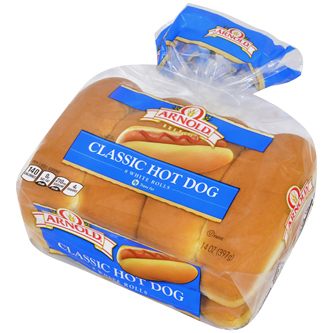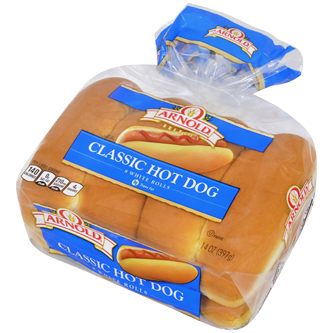
Editor’s note: This article has been updated as of December 5, 2018.
Editor’s note II: On Monday, December 10, 2018, Bimbo Bakeries USA contacted this reporter to say that Thomas’s and Entenmann’s would remain under kosher certification.
Bimbo Bakeries USA, which owns many of the nationally distributed bread and bun brands in America, including Arnold’s, Oroweat, Thomas’, Sara Lee, Stroehmann, Freihofer’s and Entenmann’s, made the decision in 2017 to drop the world’s largest kosher symbol, the OU (Orthodox Union) certification, from many of its products. The Jewish Link also learned of plans in the works to drop certification from a large portion of its Kof-K certified products as well.
However, this is not a decision to drop a specific kashruth agency in order to use another. As the story has unfolded over the last few days, it is clear the dropping of two agencies are part of a larger decision affecting a wide swathe of kosher-keeping consumers. “To enable more efficient operations, we’ve made the decision to remove kosher certification from our bread products. This change will not impact the quality, freshness or availability of our products,” said Nicole Lasorda, speaking of behalf of Bimbo Bakeries USA.
Maintaining kosher and non-kosher manufacturing lines, some Arnold’s breads and several of the other brands in Bimbo’s portfolio have carried the OU symbol for over three decades, creating a multi-generational level of customer loyalty. Arnold’s, in particular, has been relied upon in markets where kosher-certified bread products are sparse. Bimbo Bakeries USA is also the largest private labeler of breads in North America, with the Kof-K certifying many grocery store brands. “For many, many years, breads from Bimbo have been certified by both the OU and the Kof-K. They have decided to move away from kosher certification programs in general. They are reducing the scope of what they are certifying,” said Kof-K’s director Rabbi Daniel Senter.
Stroehmann’s, Brownberry, Orowheat, Nature’s Pride, Maier’s and Canada breads have all had products under certification by the Kof-K, and many of those certifications are or will be removed as well, according to Rabbi Senter. “If this trend continues, this will have ramifications for many kosher consumers to be able to purchase bread,” he noted, explaining that the way bakery businesses have conglomerated in the U.S. means that multiple items under multiple labels are produced in different factories around the country. Kosher certifications may present restrictions on what baked goods can be produced in which factories, which Bimbo may not see as relevant from a business perspective.
Kosher consumers pay close attention to kosher designations on bread. Because bread is often paired with either meat or dairy foods, kosher consumers often opt to purchase kosher-pareve breads, which do not contain either milk or meat products. Kosher-dairy hot dog buns, for example, are of little use in the kosher home. There are also multiple opinions according to Jewish law that discourage breads to be made with either dairy or meat ingredients, because of the potential for people to mistakenly eat foods in forbidden combinations.
Arnold’s widely available kosher-pareve hot dog and hamburger buns were a much-appreciated innovation in kosher food that many remember, though today they are taken for granted. For some, the availability of kosher buns was a revelation on a par with the sea change that began in kosher food when Nabisco’s Oreo cookies became OU-dairy in 1998.
“When I came to the OU over 30 years ago, Arnold’s was one of the first products I worked on,” said Rabbi Moshe Elefant, the OU’s chief operating officer, who noted that kosher consumers who don’t live in the tri-state area have fewer, if any, pareve bread choices. In the Midwest, South and West Coast, where generally fewer products are available with kosher certification, “people have been relying on the Arnold’s line of bread,” said Rabbi Elefant.
“This has been the bread of choice for kosher consumers all over the country,” said Rabbi Zvi Nussbaum, the primary voice behind the OU kosher hotline. “It’s a staple of many Jewish homes. This has hit kosher consumers like a ton of bricks,” he said.
Rabbi Nussbaum warned that consumers should check the packaging of their favorite bread before purchasing it, and not take for granted that the items are kosher. “Their eyes are not playing tricks on them,” he said, noting that consumers have correctly ascertained that the Arnold’s light whole wheat loaf, a very popular product, no longer carries the OU. “Please look at these products carefully, and don’t purchase it or return it to the store if you find a product without hashgacha,” Nussbaum warned.
According to koshertoday.com, many supermarkets specifically carry Arnold’s because of their kosher certification; the Freihofer’s OU pareve buns are a staple even on the East Coast where many other certified kosher/yoshon products are also available. The decision to drop the OU from such products could engender a backlash like the one that occurred with the Stella D’Oro Swiss fudge cookie designation from OU to OU-dairy in 2003 (which was reversed), or Trader Joe’s decision to similarly move their semi-sweet chocolate chips to an OK (another major agency)-pareve to OK-dairy designation (not yet reversed, but many live in hope), in 2012.
Bimbo Bakeries USA is part of Grupo Bimbo, Mexico’s largest baking company, with operations in 21 countries, which entered the US market in 1994 and by the late 1990s had acquired Entenmann’s, Thomas’ and Boboli. In 2009, Grupo Bimbo purchased the remaining US fresh-baked goods business of George Weston Ltd., adding brands such as Arnold, Brownberry, Freihofer’s and Stroehmann. It also owns Sara Lee’s bread business.
Rabbi Elefant explained that Arnold’s, as well as Bimbo’s other brands, manufacture their products all over the country, and he thinks the dropping of kosher certifications was primarily a business process decision. “I think they wanted to have the flexibility of making products wherever they want,” he explained.
“However, our experience has been that when customers notify the manufacturer about changes in the products that adversely affect them, the manufacturers listen to their customers’ opinions,” he said.
“I think these decisions are reversible. Especially if you are dealing with a bread product, because they have to be fresh. An item made today can be kosher (again) very quickly,” he said.
Social media chatter regarding whether kosher certification of certain brands such as Arnold’s was granted to the OK, another major kashruth agency, are unfounded, according to Rabbi Chaim Fogelman, director of public relations for OK Laboratories. Rabbi Senter confirmed that many existing Kof-K certifications would be discontinued, and encouraged consumers to keep a close watch on packaging.
The Rabbinical Council of America sent out an “urgent notice” about the Bimbos Bakeries products, and has recommended that those wishing to urge the company to maintain kosher certification of favorite products should contact the company at 1-800-984-0989, or utilize their customer feedback form:https://www.bimbobakeriesusa.com/contact-us








